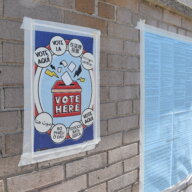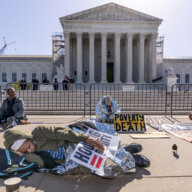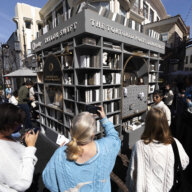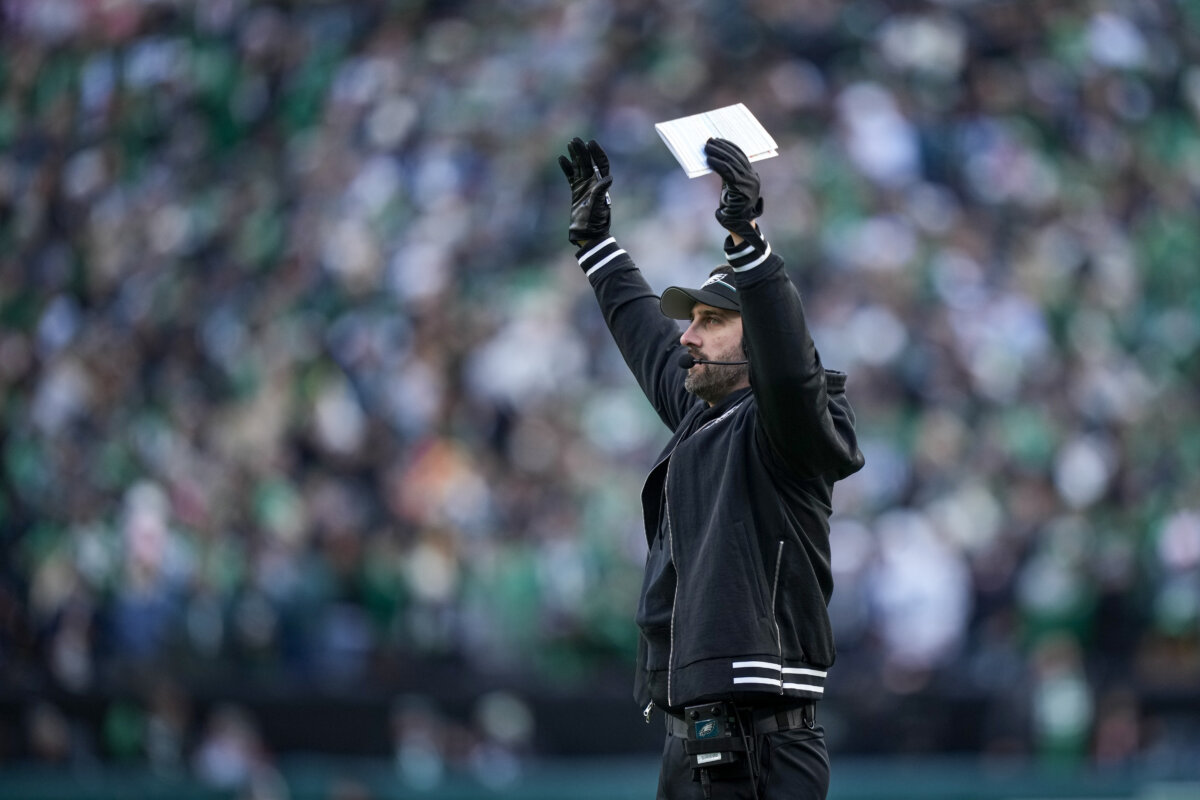Though seven members of Occupy Philadelphia were acquitted of defiant trespass charges Monday stemming from a sit-in at the Comcast Center in November, protesters arrested at a Center City Wells Fargo bank branch and tried yesterday on similar offenses were not so fortunate.
A judge found twelve demonstrators guilty of both trespass and criminal conspiracy.
After the verdict, members held a “people’s court” in front of the Criminal Justice Center, finding Wells Fargo guilty of discriminatory lending practices and other offenses.
“I see it as a victory, to be totally honest, because all along what we were trying to do is bring attention to these issues in the city,” defendant Aaron Troisi said of the trial. He said he is considering filing an appeal tomorrow.
Occupy members and allies from some of the city’s blue collar unions filled the courtroom to capacity. Many sat in rotating 15-to-30-minute shifts to allow others to observe.
Municipal Court President Judge Marsha Neifeld at times became frustrated with the throng, issuing stern warnings to keep quiet and threatening to confiscate cell phones after bailiffs chastised attendees.
Attorneys attempted to mount a similar defense as that argued in Monday’s trial, claiming that demonstrators were in a public place, did not receive reasonable notice to leave and were simply exercising their first amendment rights. They also said that the demonstrators’ intent was not to interfere with the bank’s business, but to complain about Wells Fargo banking practices, as many customers do each day.
“The testimony made it very clear that customers can complain about their account,” argued attorney Jonathan Feinberg. “The only reason protesters were treated differently than regular customers was the content of their statements.”
Caught by the camera
One damning piece of evidence was a video shot by police. It shows the bank branch service manager giving now-retired Civil Affairs Capt. William Fisher the go-ahead to remove the rowdies, then shows Fisher issuing protesters three warnings before arrests are made.
Despite efforts by the defense to have the evidence stricken, as Fisher did not appear and was therefore unable to be cross-examined, the judge denied the motion.
Assistant District Attorney Stacy Hughes seized the opportunity to use defendants’ on-camera conduct as proof they were aware they could be arrested and they did intend to disrupt business.
“They didn’t come there to approach anyone at the bank to have a discussion, they came to interfere,” she said. “They came yelling and screaming.”





























